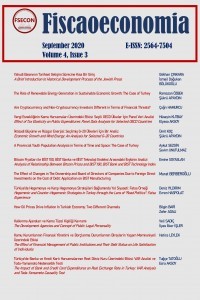
Fiscaoeconomia
Yazarlar: Abdiweli Mohamed MOHAMOUD, Erol BULUT
Konular:Sosyal
DOI:10.25295/fsecon.2020.02.009
Anahtar Kelimeler:Poverty,Households,Logit Model
Özet: The main purpose of this study is to identify the key factors that determine a household’s poverty status. The study uses an econometric method, which called “logistic regression” analysis to determine the probability of a household being poor. The data used in the study is obtained from Somali High-Frequency Survey (SHFS) Wave II conducted by World Bank in collaboration with Somali statistical authorities in December 2017. The study found that type of residence household size, household head education, the share of literate in the household, access to electricity and small family business, agriculture fishing and hunting significantly explain the variation in the likelihood of being poor. Share of males in the household and agriculture, fishing and hunting as the main source of income for households reduces the probability of being poor. The study does not found a strong relationship between the probability of being the poor and the educational level of the household head.